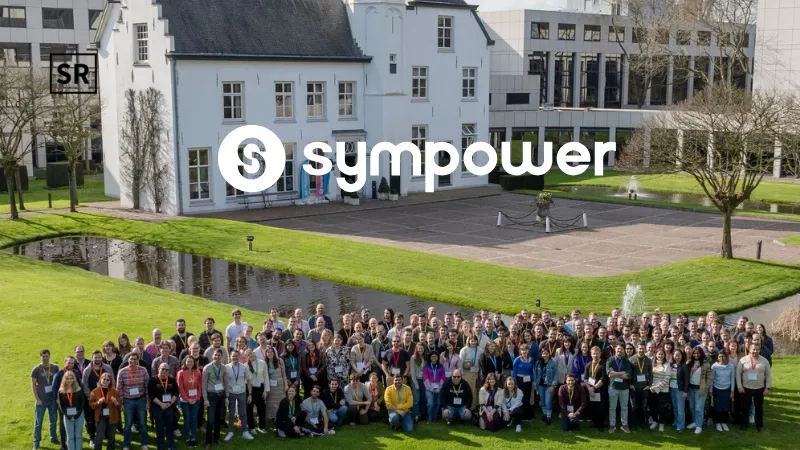Finland’s DataCrunch Raises €55 Million Funding In Series A Round
Sep 8, 2025 | By Kailee Rainse

Helsinki-based DataCrunch, a high-performance AI infrastructure provider, has secured €55 million in a Series A round to scale its compute platform and pursue its goal of becoming Europe’s first AI cloud hyperscaler.
SUMMARY
- Helsinki-based DataCrunch, a high-performance AI infrastructure provider, has secured €55 million in a Series A round to scale its compute platform and pursue its goal of becoming Europe’s first AI cloud hyperscaler.
The round was led by byFounders, Skaala, Varma, and Tesi, with participation from J12 Ventures, angels, and debt financing from Nordea, Armada Credit Partners, Danske Bank, Norion Bank, and Local Tapiola.
“European organisations are facing a critical choice: continue depending on foreign cloud providers or invest in local infrastructure that offers true data sovereignty,” said Ruben Bryon, CEO and Co-founder of DataCrunch.
Founded in 2020 by CEO Ruben Bryon, DataCrunch has now raised a total of €76.5 million following its Series A. The company delivers high-performance, cost-efficient cloud GPU solutions for AI training and inference, serving clients like Sony, Freepik, Schibsted, 1X, Unbabel, and leading universities.
RECOMMENDED FOR YOU

[Funding alert] Paris-based KYC Solution, Ondorse, Secures €3.8M in Seed Funding
Team SR
Sep 27, 2023

Backing Founders From “day zero”, Volve Capital Closes Fund I At €9 Million
Kailee Rainse
Dec 2, 2025

Go Potty funding news – The Hague-based Go Potty Secures €350K in Pre-Seed Funding
Kailee Rainse
Jan 21, 2025
Read Also - British Startup BoobyBiome Raises €2.8 Million Funding
DataCrunch is developing an end-to-end platform for AI, offering fast and affordable access to compute clusters optimized for every stage—from research and training to large-scale inference. It is also among the first worldwide to deploy NVIDIA’s HGX B200 systems, with plans to add the B300 and GB300 soon.
Bryon added: “This funding enables us to accelerate our vision of becoming Europe’s first AI cloud hyperscaler, providing enterprises with cutting-edge infrastructure that keeps their data secure, their operations compliant, and their environmental impact minimal. As regulatory, environmental, and technological forces converge, the company aims to become the default platform for enterprises seeking high-performance, compliant, and sustainable AI compute in Europe.”
With the latest funding, DataCrunch plans to scale its infrastructure, grow its team, and broaden services by deploying NVIDIA’s newest systems. The company has also proposed an AI gigafactory in Latvia, in collaboration with the Republic of Latvia and global investors, and submitted its expression of interest to the European Commission.
The gigafactory aims to house ~100,000 AI accelerators, delivering secure, regulation-compliant compute capacity within the EU. It will support startups, SMEs, and research institutions, powered by up to 100% renewable energy. While based in Latvia, the project is designed to expand across the EU and welcomes additional partners.
“DataCrunch exemplifies the type of European tech leadership that’s essential today,” said Henrik Rosendahl, board member in DataCrunch. “As AI becomes increasingly integral to business operations, European enterprises are seeking infrastructure partners who not only grasp complex regulatory landscapes but also share their sustainability values. DataCrunch delivers on both, while providing access to the most advanced AI compute on the market.”
Europe’s AI market, set to hit $1.4 trillion by 2033, faces a major infrastructure gap. US giants Amazon, Google, and Microsoft hold nearly 70% of the region’s cloud market, while Europe’s largest provider has only 2%. This reliance fuels concerns over data security, costs, and compliance.
DataCrunch aims to change this by building a secure, sovereign, and scalable AI cloud fully rooted in Europe. Positioned as one of the few credible alternatives to US hyperscalers, it offers enterprises advanced hardware access while safeguarding data locality and sustainability.
About DataCrunch
DataCrunch.io is a new cloud service provider focused on delivering dedicated infrastructure for machine learning. They offer high-performance scalable solutions that support AI research, training and inference enabling businesses and researchers to access powerful computing resources efficiently and reliably for advanced machine learning workloads.
Recommended Stories for You

Legitify partnership news – Legitify Announced the Formation of a New Partnership with DocuSign
Kailee Rainse Nov 12, 2024


 Follow us
Follow us Follow us
Follow us











